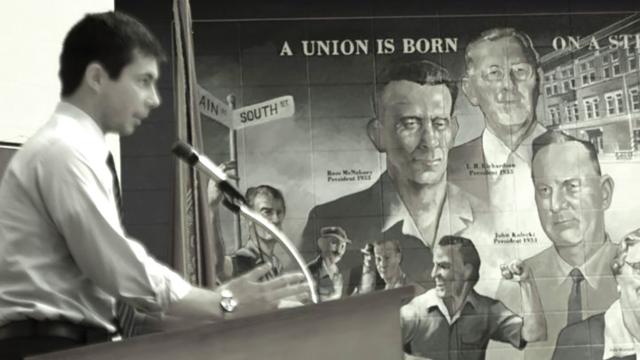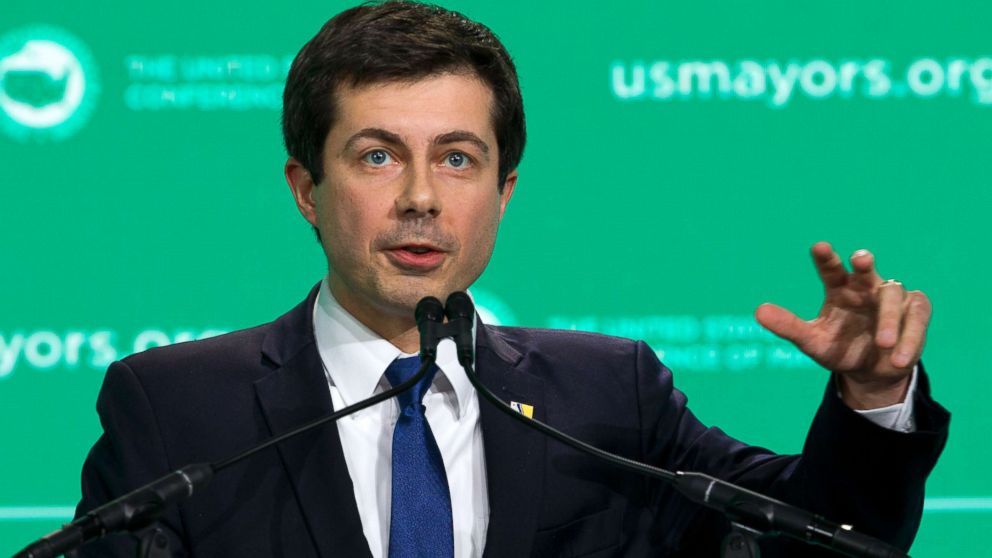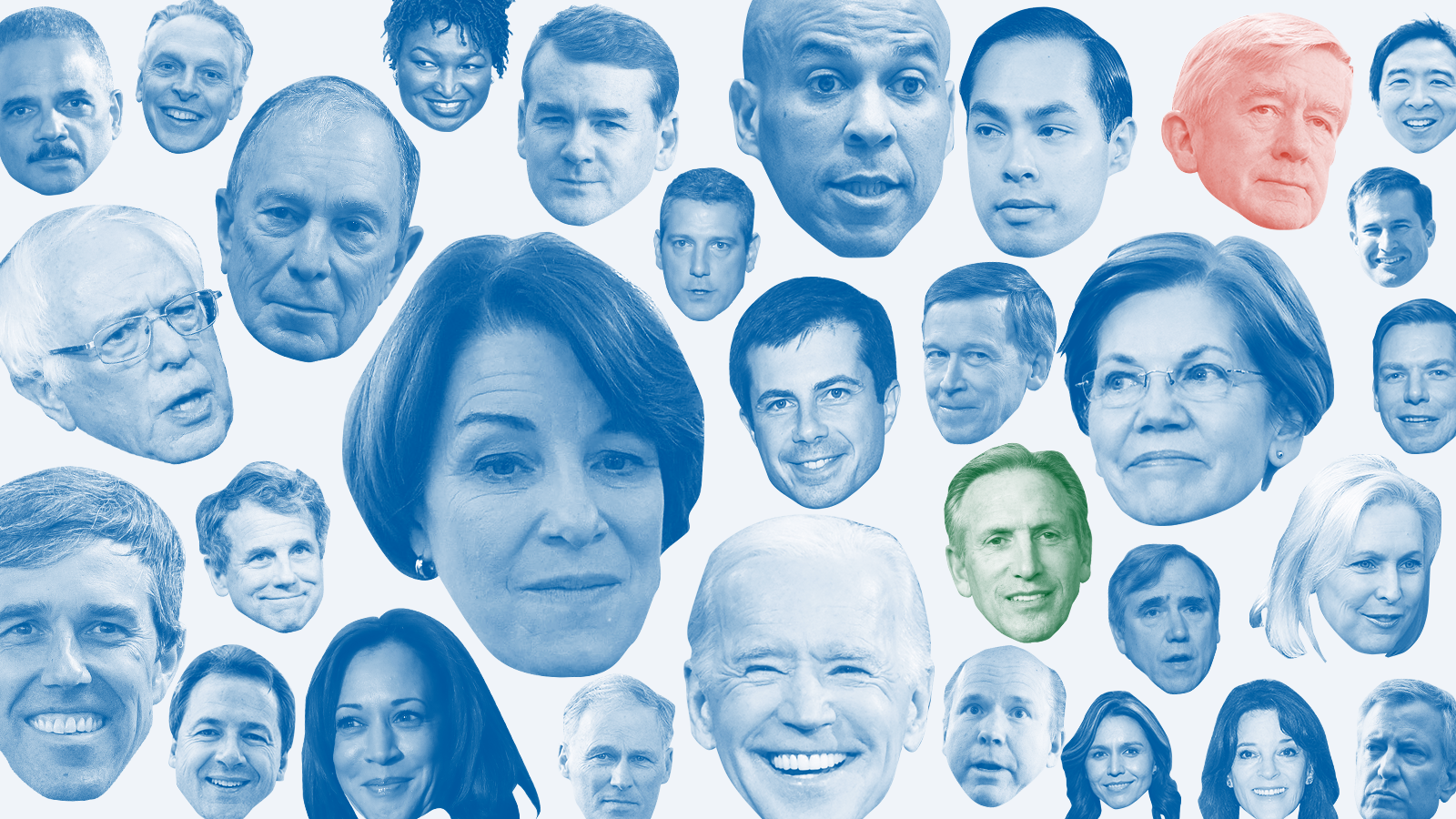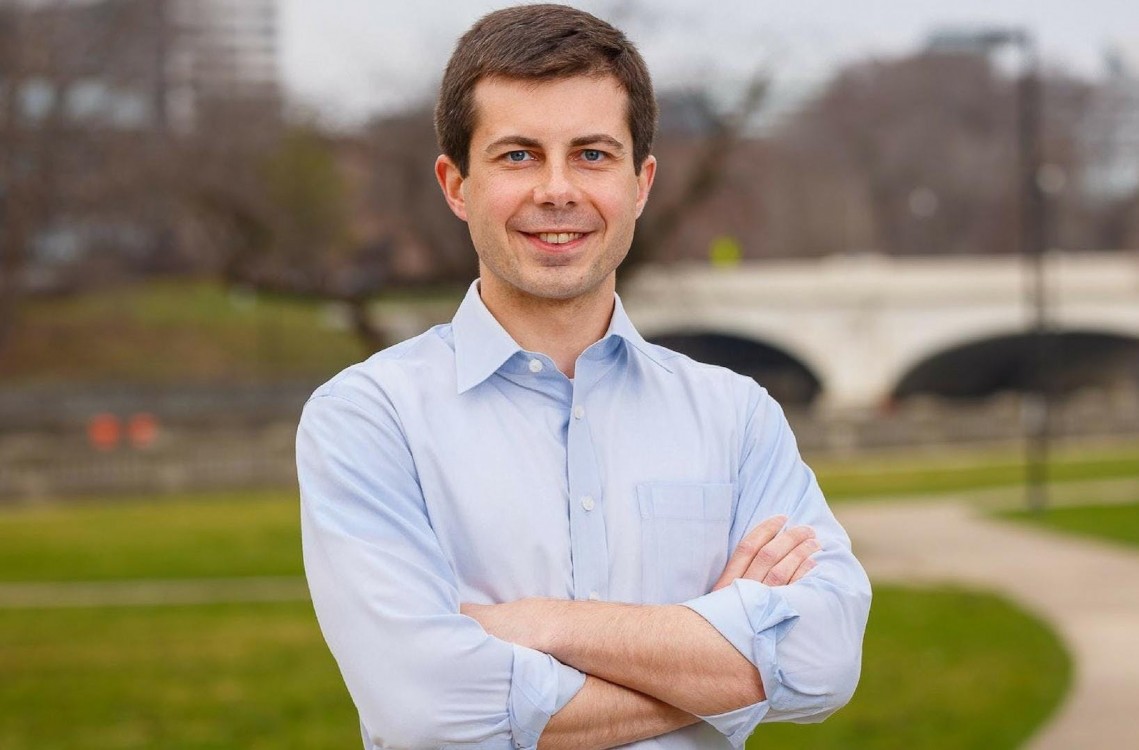
BROOKLYN, New York – Of all the long shots ever to pursue the White House, Pete Buttigieg may be the longest. The 37-year-old Democratic mayor of South Bend, Ind., (population 101,000) is a Phi Beta Kappa graduate of Harvard, a Rhodes Scholar, a former Naval Intelligence officer who served in Afghanistan, and the first openly gay person to seek a major party’s presidential nomination.
Mr. Buttigieg is too smart not to know that he stands little chance of winning the nomination of a party whose single focus is on extirpating the social pathogen that is Donald Trump. It is therefore looking for the most electable candidate, not necessarily the smartest, and it will have reasonable doubts that a gay candidate will win more swing voters than he alienates.
Within the swelling ranks of Democratic hopefuls, “Mayor Pete” is for the moment in the second tier of relatively obscure candidates chasing household names like Bernie, Biden and Elizabeth Warren. Indeed, one suspects his real motive is to establish a national presence that will serve him in future election cycles.
If so, he’ll have many opportunities. He could run in 2052 and still be no older than Donald Trump was in 2016. In 2060 he’ll be the same age as Bernie Sanders will be next year. Forty years from now, “old age” will have been redefined upward and sexual orientation will be about as salient as a preference for Pepsi. The elderly, white, red-state demographic where nativism, “elite” resentment and the other obsessions stoked by Fox News reside will be as dead as Roger Ailes and The O’Reilly Factor.
Mr. Buttigieg’s performance before a packed house at Brooklyn’s Central Library on Monday bodes well for progressivism. He is not afraid to endorse policies that one could loosely call socialist (mandatory national service, single-payer healthcare), and does not shy away from policy wonkiness (a liability among Republican voters) to avoid looking like that dreaded species, the “expert.”
During Monday’s one-hour conversation with The New York Times’s Frank Bruni, the candidate was articulate, knowledgeable, confident, relaxed and often funny in a self-deprecating way – the very antithesis of the vane, insecure, know-nothing Crustacean-in-Chief now in the White House. In a debate he’d run rings around Mr. Trump, or, for that matter, the wooden factotum that is Mike Pence.
Since most readers know little of Mr. Buttigieg as yet, a few quotes from Monday night, edited for clarity:
On the lessons of 2016: “Well, certainly to pay attention to places like the industrial Midwest. I think also to understand that as important as policy is … it’s not always about policy. And it’s not even about ideology. If you think that people make their decisions based on arraying everybody they see on an ideological spectrum and choosing the right guy, you’re misunderstanding how a lot of voters think.”
On whether social media on the whole enhance or poison the national conversation: “I don’t think we have yet reckoned with all the ways it can do good or do harm…. Even the people who created it don’t fully know…” But the federal government should not keep its hands off of an industry with such an enormous public power, he said. “For one thing, we need a policy that clarifies the ownership of data. We are behind on this.”
On whether Donald Trump is the worst president ever: “Yeah, probably – the mix of personal corruption and disregard for the meaning of the office; the complete lack of curiosity, and what seems to me to be a real lack of empathy too. The silver lining is that it’s compelled us to question a lot of our assumptions.”
On Mike Pence: “There’s this kind of social fanaticism about him. It’s like a moth to a flame. The question all the business reps were asking when he took office [as Indiana governor] was would he be able to contain his own instincts on this stuff or will he just not be able to help himself. And pretty soon with this so-called religious freedom act we got our answer, which is that he went right there. And it divided our state and it harmed our city and it hurt a lot of people. The only real puzzle about Mike Pence is how does someone who is as outwardly religious as he is wind up becoming the cheerleader of the porn-star presidency. And the answer, of course, is political expediency.”
On the Green New Deal: “I support it. Any honest answer to that question has to acknowledge that it is currently a set of goals, not a fully articulated plan, and it is not obvious how we get there. We need to treat climate change like the major emergency that it is … its destructive power is nothing less than the Great Depression or a major world war.”
On Medicare for All: Buttigieg supports “some version of Medicare available on the exchanges, a sort of public option.” If that proves effective it will be “a very quick pathway” to Medicare for All. “I don’t think private insurance can remain the central way to get our coverage. We don’t necessarily need to talk about doing away with a private role, but leaving Americans to the tender mercies of corporations has generally not worked out well for us.”
Mr. Buttigieg sees the conversation on healthcare as “a great example” of how the right “has dragged the entire American political spectrum rightward,” so that a moderate, compromise approach like Obamacare – somewhere between a socialized and completely privatized healthcare system – “has been characterized as something coming from the far, far left – as was Obamacare, which was invented by conservatives. We’ve got to redefine right, left and center to make a little more sense relative to where the American people are, and I think when we do we’ll see that Medicare for All is not some loopy communist idea.”
On gun control: “[It's] a great illustration of what’s wrong with our democracy, in that on something like universal background checks 80 or 90 percent of Americans, including most Republicans and most gun owners, think that we ought to do it. And yet Washington has not been able to make it happen, which to me means that something must have happened in the configuration of our Congress that puts it out of step with the American people.”
On money in politics: Part of that something was the Supreme Court’s 2010 Citizens United ruling, which was “a disaster for our democracy.” If common-sense campaign-finance rules, “where dollars can’t outvote people,” are impossible under the current Constitution, “then it’s time for a constitutional amendment. It is absolutely plausible, I think, that we would contemplate a constitutional remedy to make sure our democracy is more democratic.”
As for his own campaign, Mr. Buttigieg vows to take no PAC money, only small donations, and hopes to get the 65,000 contributors necessary to qualify for the Democratic debates. “Somebody like me is not going to get very far anyway unless I can do that.”
Unlike the empty, disordered mind in the White House, Buttigieg thinks about and articulates big-picture ideas, like the inherent tension between capitalism and democracy. “Capitalism will devour itself if economic power becomes political power, to the extent that there’s no sense of justice. I think one reason that the word ‘socialism’ is no longer as effective for anyone my age or younger – you can’t kill an idea just by calling it socialist; you have to explain whether it’s a good or a bad idea – is that we’re not from a generation that grew up where socialism and communism went together on one side and capitalism and democracy went together on the other. One question we have to ask ourselves is: If there are moments when democracy and capitalism come into tension, if you really have to prioritize one, do you prioritize capitalism over democracy, or do you prioritize democracy over capitalism?”
It would be naïve to effuse over such an unknown quantity just because of a single impressive performance. We don’t know what, if any, skeletons may be in the Buttigieg closet, though it seems doubtful there are any. And it’s a fair question whether he’s up to the challenges of foreign policy. We already know what happens when a foreign-policy novice takes the reins, though Mr. Buttigieg clearly has a stronger understanding of the world than Donald Trump (admittedly a low bar). For the record, he’s for withdrawing from Afghanistan but not Syria.
Whatever his fortunes in 2020, Mr. Buttigieg already exemplifies the American tradition of barrier-breaking by formally excluded groups. There was a time when Catholics, blacks and women were effectively ineligible for national office, and by now we have elected all three, if you count Hillary Clinton’s popular-vote victory. Maybe Mayor Pete will break another one.
Chris Gay is a writer in New York City.














